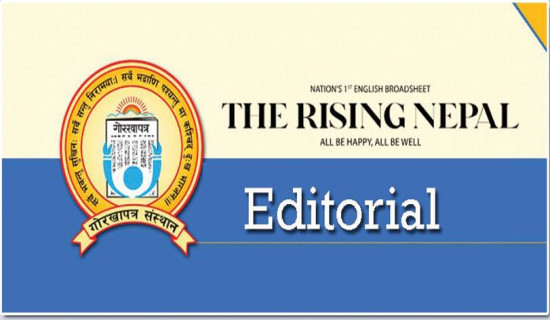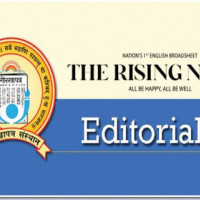- Friday, 23 January 2026
Broader Labour Plan
Labour is one of the key factors contributing to growth and development of a nation. As human element, labour is involved in the production of goods and services. It is made up of persons who give their time to businesses in exchange of wages for a definite period. Using the money they earn by working during their unpaid leisure times, they can buy goods and services. This propels businesses to hire more labourers to produce additional quantity of goods and services in order to meet the growing market demand. Since labourers are directly related to production and consumption, they can easily influence an economy. It is the quantity and quality of labour supply that determines the economy’s rate of production as well as growth. With the expansion of economic activities in modern times, businesses may not be able to easily find an adequate number of labourers having proper skills. In such a situation, the labour cost goes up, leading to an increase in prices of products and services.
Nepal has a big labour force, with more than 16.8 million workers working at home and abroad. As of 2017, the nation’s labour force was rated the 37th largest in the world. With the scarcity of employment opportunities within the country, there has been a rising tendency among Nepali youths to go abroad in search of jobs. However, Nepali migrant workers have been playing a crucial role in sustaining the national economy as they send billions of rupees as remittance every year. In view of numerous labour-related issues, the Ministry of Labour, Employment and Social Security has come up with a five-year strategic plan. As the first of its kind, the plan includes six pillars: internal employment promotion, foreign employment management, labour relations and occupational safety, vocational skills development training, contribution-based social security, good governance promotion and labour diplomacy. Under this plan, various activities are going to be implemented in the next five fiscal years (2022/23-2027/28).
Unveiled on Sunday, the plan will assess varied activities to be carried out, their cost and expected outcomes. It also includes inputs given by different stakeholders. Regarding internal employment promotion, the plan will be focussed on ensuring minimum employment. It aims to promote productive employment and expand integrated employment services. The plan seeks to make foreign employment safe, systematic and dignified, to maximise foreign employment by identifying skilled job opportunities. Besides, the plan prioritises boosting labour productivity, maintaining good industrial labour relations, making optimum use of labour force and enforcing child labour prevention master plan. It will work towards reducing workplace risks, building capacity of labour administration, promoting business and human rights, formalising informal labour, and balancing the demand and supply of skilled and semi-skilled manpower.
In addition, the plan will promote good governance and make reforms in policies and laws and ensure an effective labour diplomacy. It also aims at expanding productive job opportunities in the country, reducing the rate of unemployment, imparting vocational and skill development training to produce labour force in order to meet the demands of national and international labour markets. The comprehensive plan will also bring the general public under the scope of contribution-based social security. In the meantime, Prime Minister Sher Bahadur Deuba has vowed to deal with all the labour-related issues and make the labour market more dynamic. Opening the national conference of the Nepal Trade Union Congress (NTUC) in the capital on Sunday, Deuba emphasised the need to bring the workers working in the informal and foreign employment under the coverage of social security.

















